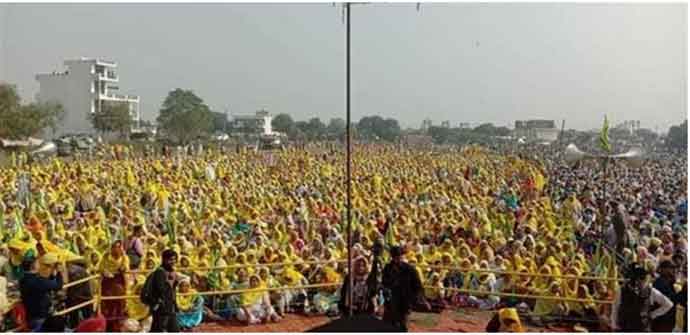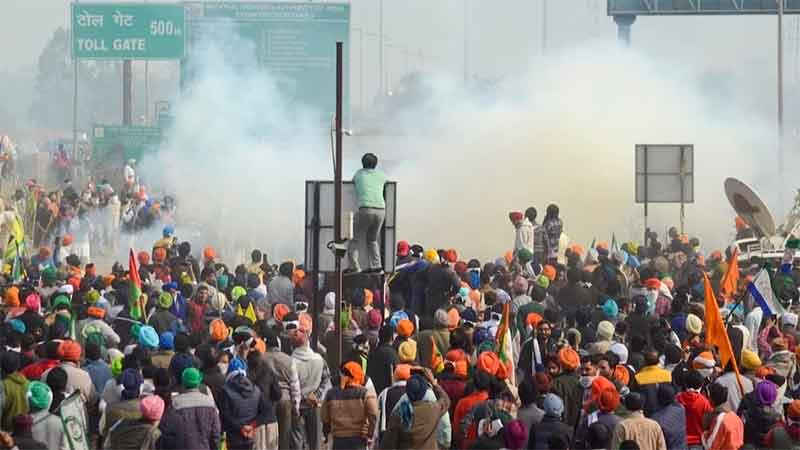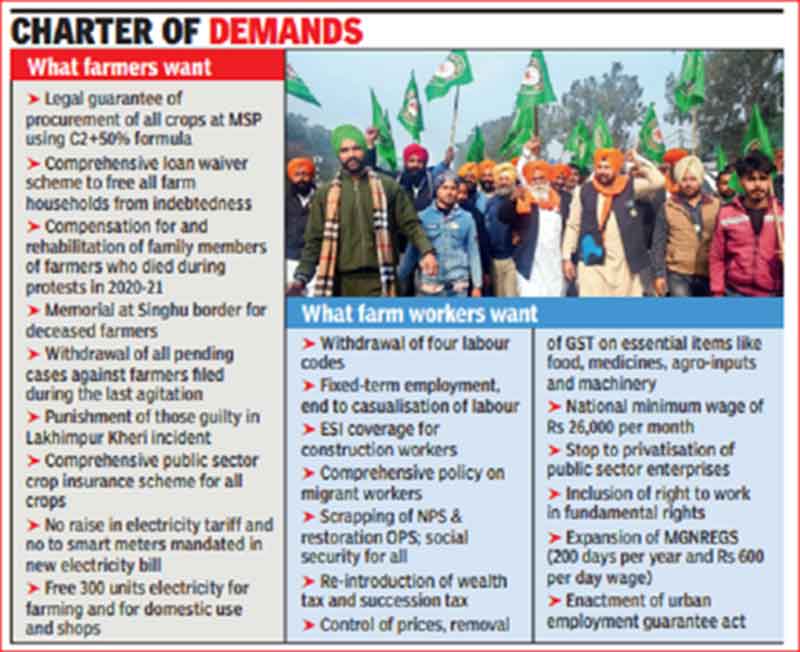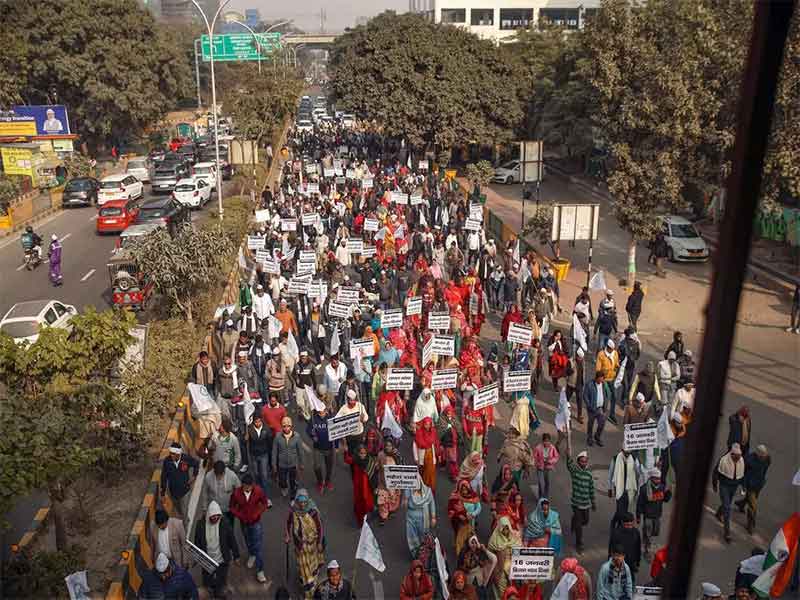
Repealing farm laws by the central government seems to be a political compulsion for upcoming state assembly elections, particularly in Punjab and Uttar Pradesh as the ruling central government could not popularize politically its agro reform decisions at larger level. Although, the government is well aware of its blunder decisions of farm laws as the long lasting movement against the government including more than 600 losses of lives exposes the government as insensitive, repressive and authoritarian. Hence, the government remains trapped in ‘loss-loss’ situation, either in continuing or repealing the three farm laws as large ratio of the Indian population belongs to agriculture and allied activities who are disappointed with the said laws.
For the first time in post independent India, we are witnessing with an active and vibrant resentment against any law of the land as farmers including all oppositions parties remain engaged in protesting against the law by sitting dharna on roadside, blocking the road and highways and campaigning against the ruling party. Further, the scandalous and shameful incidence of Kheri district of Uttar Pradesh has acted as refueling for the ongoing movement. More or less, allegation of on the part of existing minister’s son in Kheri incidence made the government to decide to introspect about the laws. As both the situation either continuing or repealing the laws is destined to be a political disaster for the BJP as the upcoming election for 2021 state assembly of Punjab and Uttar Pradesh would have attracted a lot of negative campaigning and also provides an open invitation to opposition parties to bring the BJP at back-foot. Hence, Modi’s announcement to repeal the three farm laws on the occasion of Guru Nanak Jayanti amounts to be politically sensitive rather than sensitive.
One year of duration to introspect any decision after a long agitation including more than 600 losses of lives put the government in compulsion mode despite of the laws was publicized as a masterstroke of the government towards the agricultural reforms. Now, an opportunity to find a political convenient date to announce the repeal of the laws so as to show the sensitivity towards Punjab farmers seems to be a kind of artificial sensitivity as one of the BJP’s s own oldest political collation partner SAD left the NDA while the three laws were put on Parliament in 2020 announcing the laws as anti-agricultural reforms and anti-farmer. A lot of comments and allegations against the protesting farmers including PM’s language of using ‘Aandolanjeevi” become an example of insensitivities towards farmers and agriculture reforms. After six months of period of the commencement of the movement of anti-farming laws, the dialogue and negotiations between the government and the representatives of the farmers were put on hold as well as sidelined by the government from priority list which exposed the government at all fronts. The 26 January incidence of Red-fort made the movement politically and globally popularized leading to fuelling the movement at high speed.
The repeal of the laws by the government appears to be a politically sensible decision as the all the ministers of central government, MLAs, MPs and other party functionaries became a total fiasco in convincing the advantages of the laws. On one hand, dates for state assembly election in Punjab and Uttar Pradesh are notified, on the other hand, allegation of Kheri incident acted as enzyme in bringing the government at back-foot as one of the accused of the incidence belongs to the ruling government. Therefore, showing maturity and sensitivity towards the farmers become a matter of compulsion rather than a matter of choice. From these perspectives, repeal of the laws need to be viewed as politically sensitive decision of the BJP rather than sensitive decision.
The upcoming election in Uttar Pradesh and Punjab for state assemblies appears to be more challenging for the ruling BJP as nothing special and attractive left for the ruling government to present before the voters as there have been a lot of international criticisms of Covid management of Uttar Pradesh government. At the same time, the centre has nothing to put any master stroke idea of convincing the voters by using the name of Prime Minister Modi. The western Uttar Pradesh region became an eye witness of the all the anti-farming movement as larger section of the people live their life by employing agricultural and agriculture related activities which may become a decision maker for the upcoming election of Uttar Pradesh. Likewise, the BJP government is supposed to fight elections in Punjab under the leadership Modi and achievements done by the central government. As of now, there has nothing more to show the achievement of central government as two years of the regime of NDA-II remained engaged in handling anti-CAA protest, anti-farming law protest and Covid management. Keeping in mind the above factors, the BJP tried to show the sensitive towards the farmers by repealing the three laws as also commented by union minister of agriculture in the parliament while repealing the law in the parliament. For BJP, such decision appears to be a politically sensible decision from election point of view, but not as sensitive decision of the Central government as there have been more than 365 days of commencement of the movement.
India being as a leading agricultural nation always needs a high level structural agricultural reform so as to make the agricultural activities more productive and earning sectors. Though, demand and necessities of such reforms have a long history since independence, which always kept on hitting the election manifesto of every political party and left the farmers’ issues unresolved. Therefore, suicidal cases among the middle level farmers are reported at a high rate as they could not find the appropriate rate of their farming produces due to existing norms and practices of the middleman which must be eradicated by legislating the laws provided that consents and suggestions from the farmers are considered. Unfortunately, the above three farming laws passed in 2020 appeared to be an example of a majoritarian decision model as the majority of the farmers’ view were not respected while passing the law.
Dr Ahmed Raza,Assistant Professor, MANUU (a central university) & Project Director- (MRP, ICSSR) Ministry of Education, Government of India














































